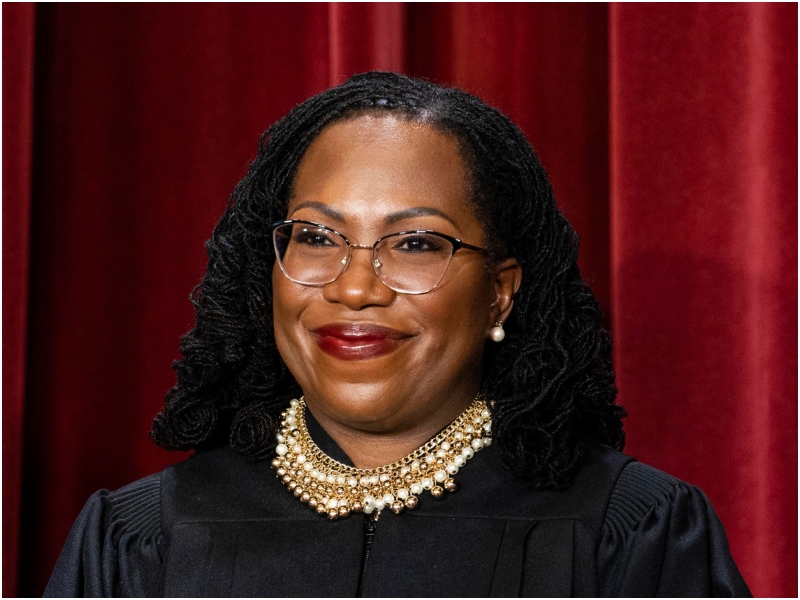In a dissenting opinion issued on Wednesday, June 26, 2024 Justice Ketanji Brown Jackson sharply criticized her colleagues on the U.S. Supreme Court for their ruling in Snyder v. United States, which declared that giving gifts to politicians does not constitute bribery under federal law.
Justice Brett Kavanaugh, writing for the majority, stated that the law in question does not criminalize gratuities and instead defers to state and local regulations governing gifts to officials.
Kavanaugh argued that federal prosecution should be reserved for cases involving clear evidence of bribery.
However, Justice Jackson took issue with this interpretation, calling it “absurd and atextual.”
She pointed out that the statute explicitly targets officials who accept payments with the intent to be influenced or rewarded, which, in her view, includes gratuities that could undermine public trust in government integrity.
“Today’s Court decision disregards the plain text of [the law], which unequivocally addresses corrupt intent in accepting gifts,” Jackson wrote in her dissent.
She criticized her colleagues for ignoring congressional intent and expressed concerns over the decision’s implications for federal oversight of public officials.
Jackson’s dissent, joined by Justices Sonia Sotomayor and Elena Kagan, underscored her belief that the Supreme Court should not undermine federal statutes aimed at preserving transparency and accountability in government.
The dissenting opinion comes amid recent controversies involving allegations that some justices have accepted gifts from wealthy donors, raising ethical questions about judicial impartiality.
Jackson’s dissent highlights broader concerns over the judiciary’s role in upholding legislative intent and combating potential corruption in public office.
“As custodians of justice, we must uphold the integrity of federal law and the legislative intent behind it,” Jackson concluded. “The Court’s decision today undermines these principles and fails to uphold the standards of ethical governance that our democracy demands.”
Justice Clarence Thomas and Kavanaugh have faced scrutiny for accepting gifts from Republican donors, although all Supreme Court justices are required to disclose such contributions.
Jackson’s dissent signals a continued debate within the Court on the boundaries of federal authority and the enforcement of anti-corruption laws at the state and local levels.

